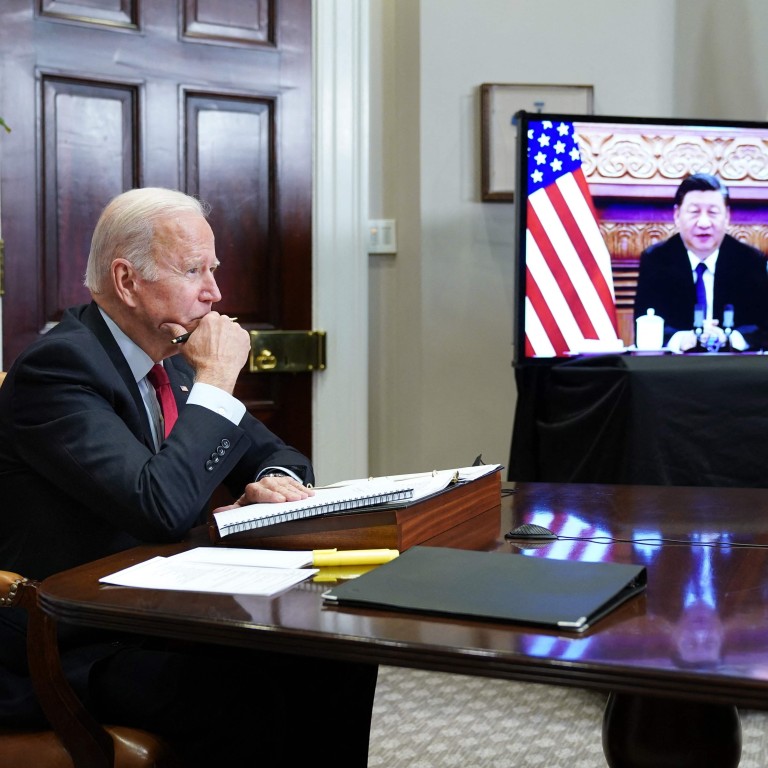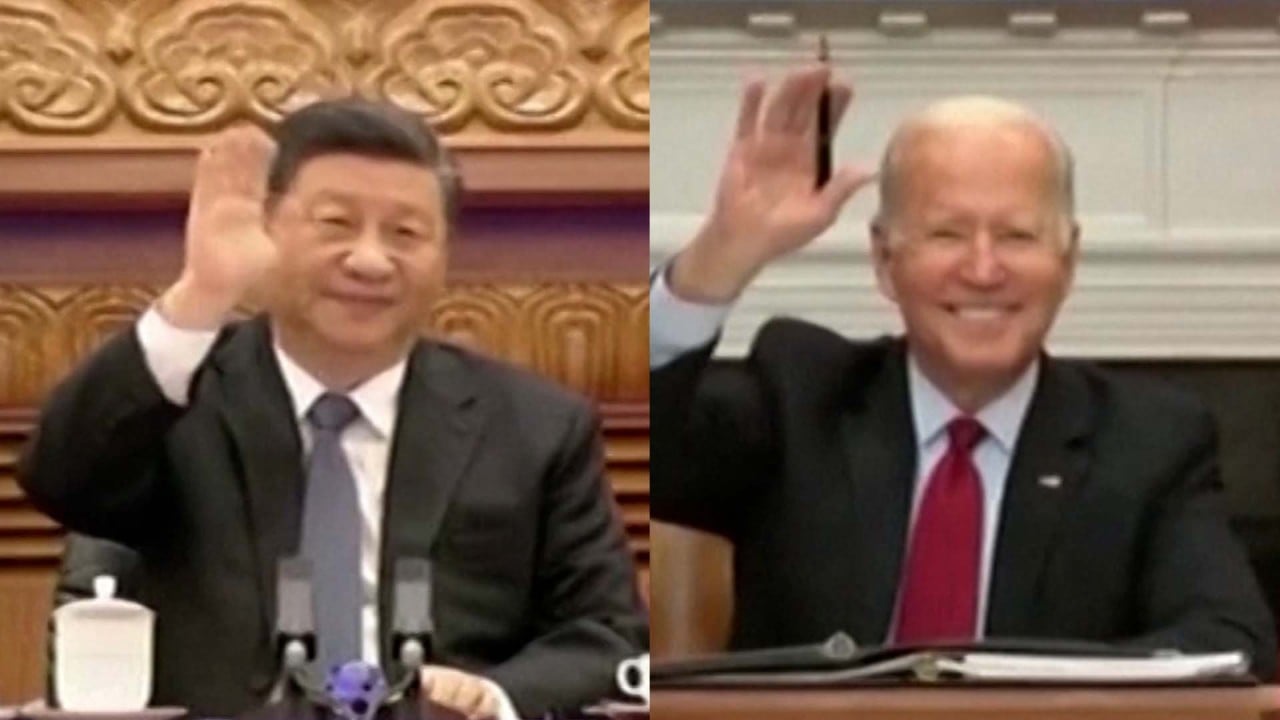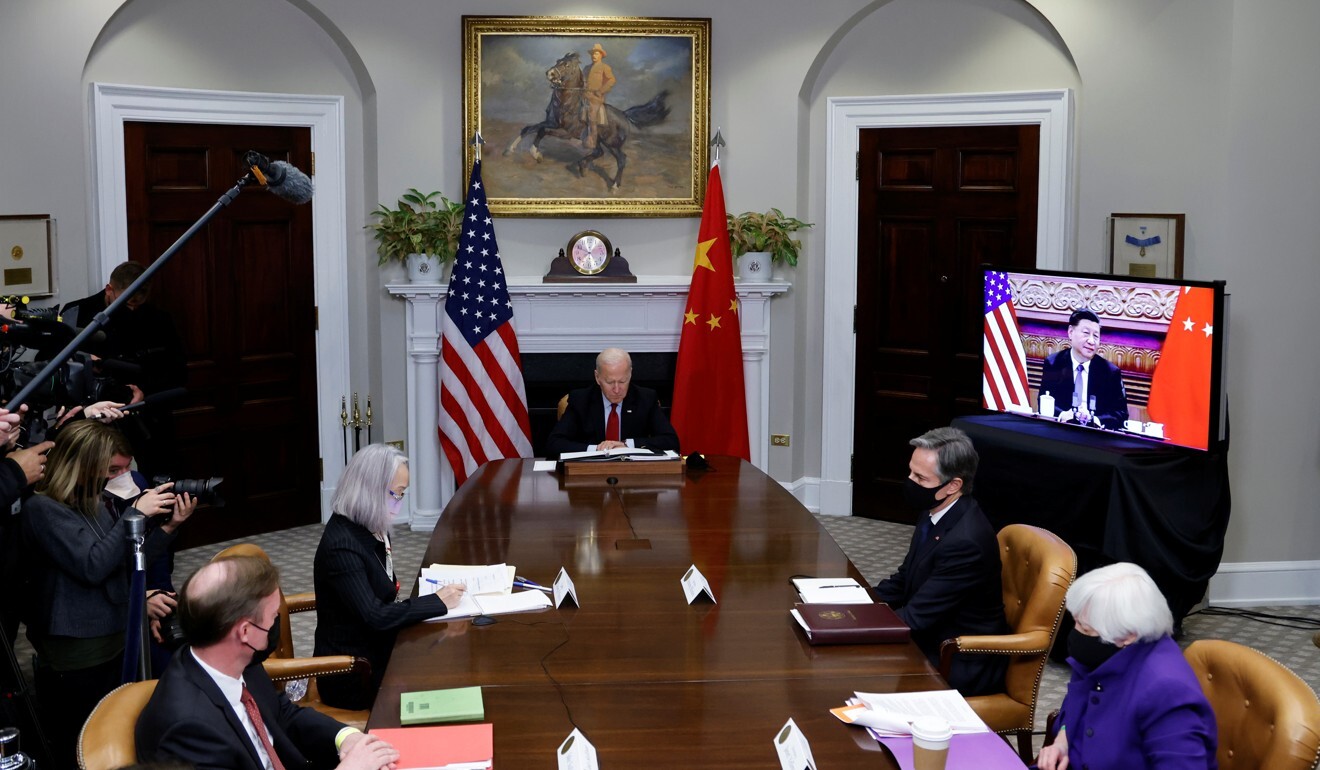
Biden and Xi agree to move toward arms control talks, says US national security adviser Jake Sullivan
- Biden made the proposal out of concern over a build-up in China’s nuclear arsenal, says Sullivan
- The meeting between Xi and Biden struck a mostly conciliatory tone, although they flagged areas of disagreement, most pointedly about Taiwan
Biden “did raise with President Xi the need for a strategic stability set of conversations around the sorts of issues you just described … that needs to be guided by the leaders and led by senior empowered teams on both sides that cut across security, technology and diplomacy”, he said.
Sullivan’s was responding to a question from Brookings president John Allen about, among other advances, China’s “potential to add as many as hundreds of warheads to their nuclear arsenal” and “the recent test of the fractional orbital bombardment system”, as US national security officials have described the hypersonics that China has tested.

02:25
Xi Jinping and Joe Biden call for mutual respect and peaceful China-US coexistence
“The two leaders agreed that we would look to begin to carry forward discussions on strategic stability,” Sullivan added. “It is now incumbent on us to think about the most productive way to carry it forward from here.”
China and the US ‘must find the right way to get along’, Xi tells Biden
US defence officials warned in the report that China’s stockpile of deliverable nuclear warheads could reach 1,000 by 2030.
However, policy analysts were skeptical on whether the talks that Sullivan said the two sides agreed to would halt this momentum.
“When China talks about wanting to talk about this stuff, it‘s basically because they want [the US] to accept ... that the United States is deterred by China, that China can hurt the United States,” said Oriana Skylar Mastro, a fellow at Stanford University’s Freeman Spogli Institute for International Studies.
The strategy is to “enhance their deterrence against [US] involvement in Taiwan, among other things, but there‘s no situation that I see of the Chinese rolling back the number of nuclear weapons they have”, said Mastro, who is also a non-resident senior fellow at the Washington-based American Enterprise Institute.

“It‘s okay to say that it’s an arms control dialogue, as long as we know that it’s not,” she added.
Bonny Lin, a senior fellow for Asian security and director of the China Power Project at the Center for Strategic and International Studies, another Washington-based think tank, agreed that Sullivan should not expect Beijing to pull back on its weapons development plans.
“China has typically been hesitant to engage in such discussions and I would imagine those reservations still exist and might make establishing a formal, recurring dialogue on these issues difficult,” Lin said. “This, however, does not preclude the possibility that the United States will continue to raise these issues and concerns at high-level meetings.
Sullivan said that the idea for US-China arms control talks were “not the same as what we have in the Russian context, with the formal strategic stability dialogue that is far more mature and has a much deeper history”.
China will keep escalating military intimidation of Taiwan, experts say
Washington and Moscow agreed this year to form two “inter-agency expert working groups”, known as the working group on principles and objectives for future arms control and the working group on capabilities and actions with strategic effects.
Bonnie Jenkins, the under secretary of state for arms control and international security, said in September that the Biden administration’s goals for the working groups include limits on new kinds of intercontinental-range nuclear delivery systems and maintaining the limits imposed by the 2010 New Strategic Arms Reduction Treaty, also known as New Start.
New Start limits each side to 1,550 strategic nuclear warheads on 700 deployed strategic delivery systems, and limits deployed and non deployed launchers to 800, according to the Arms Control Association, a Washington-based, non-partisan advocacy group.

